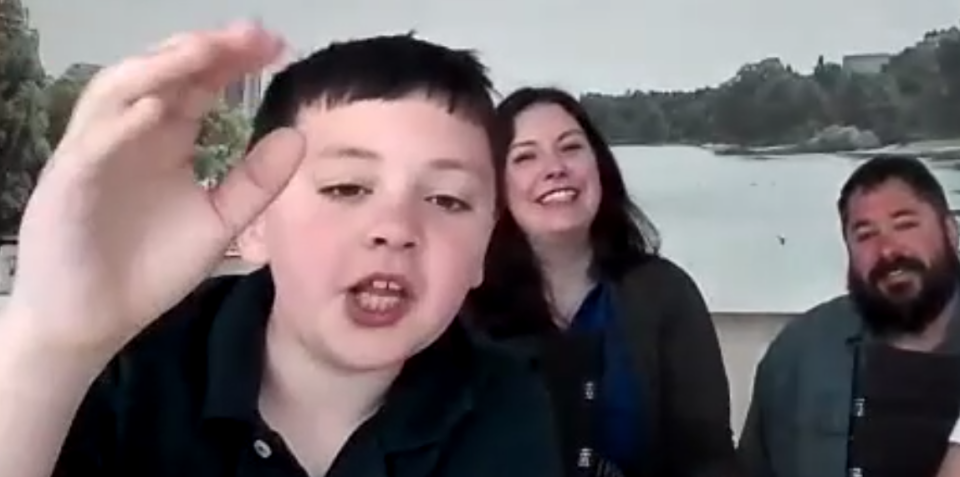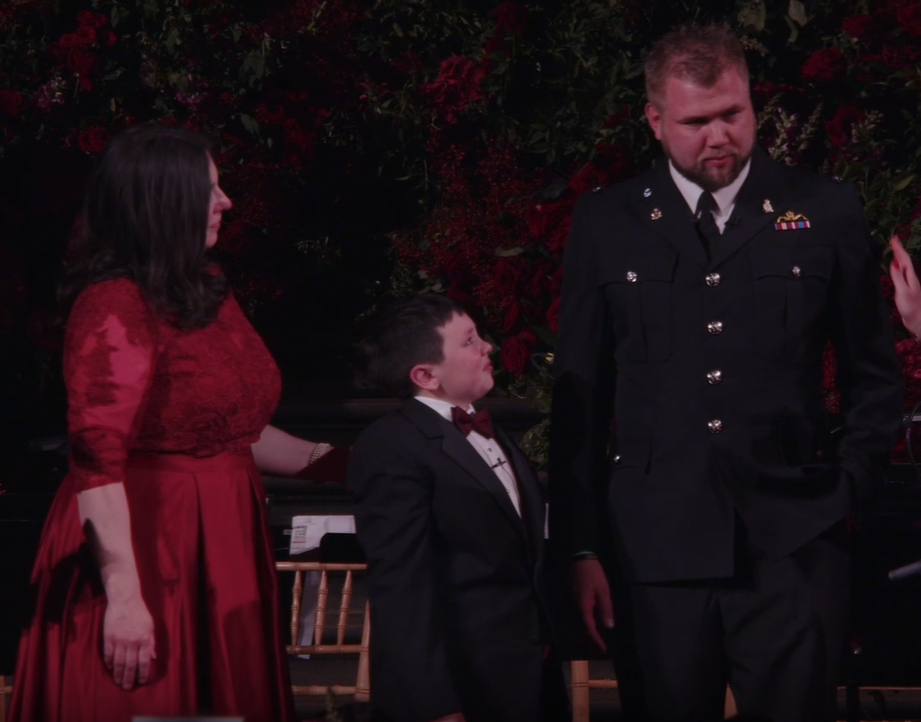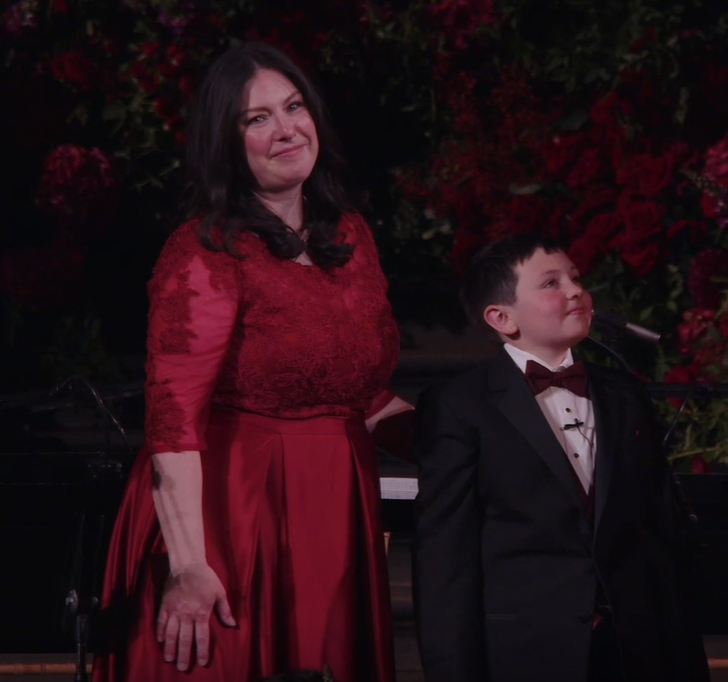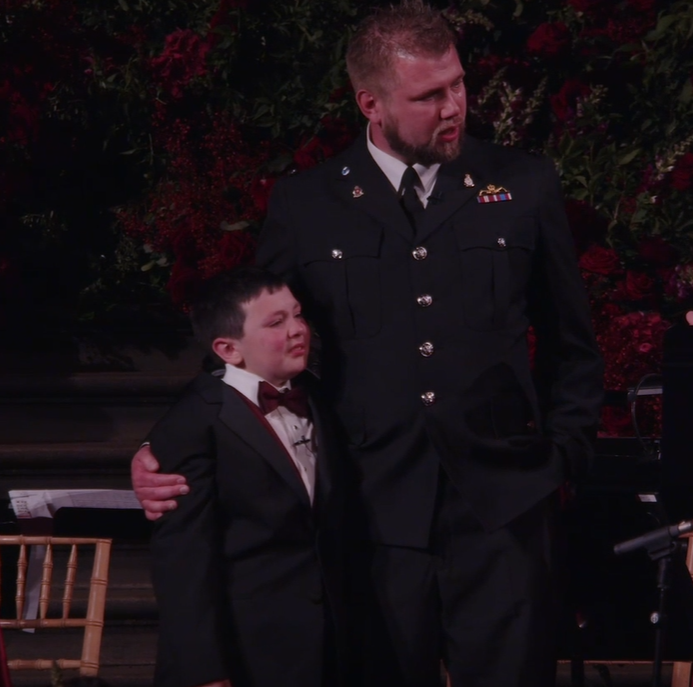US child cancer patient ‘overwhelmed’ meeting Yorkshire donor who saved his life
An 11-year-old US cancer patient diagnosed with lymphoma was “overwhelmed” with tears when he met the British stem cell donor who saved his life three years ago.
James Benzel and his mother Karen Benzel, from Alliance, Nebraska, hugged and cried with South Yorkshire Police constable Luke Bugdol, from Rotherham, at DKMS’s annual London gala at the Natural History Museum on Thursday.
DKMS (the German Bone Marrow Donor Centre) is an international charity that aims to help those fighting blood cancers and blood disorders.

The schoolboy is now in remission and told the PA news agency he was “overwhelmed” when he met Mr Bugdol.
Mrs Benzel, 40, a business executive director, said: “I was just grateful to meet the man that saved my son’s life and graciously gave a gift to give him the second chance of life. It’s just amazing.”
Mr Bugdol, said: “It really hit home because it’s the fact that it was for James.
“James, out of all of this, is a hero because James went through it all.
“Walking up to the stage I knew straight away that I’d probably struggle to talk because the emotion was there and just actually meeting him was really overwhelming.”
The 11-year-old was diagnosed in May 2018 with severe aplastic anaemia, described by the NHS as a serious condition where bone marrow and stem cells do not produce enough blood cells.

James then developed non-Hodgkins’ lymphoma, a cancer that affects the body’s lymphatic system.
Mrs Benzel said her family was “completely shocked” when her son was diagnosed.
“He went from being a completely healthy child who just finished his first year in school, and then all of a sudden had these tremendous medical issues,” she said.
“We are sitting in a children’s hospital, didn’t know what to do, what to turn to, where to go.
“It’s a very helpless feeling that you can’t physically change places with your child or help them in a different way.”
Doctors told the Benzel family James needed a stem cell transplant but none of his five siblings was a genetic match.
Mr Bugdol donated his stem cells on February 4 2019 and they were shipped to the US where James started the transplant process the next day.

Doctors first had to destroy any trace of his own stem cells to ensure James’s body was receptive to the transplant.
“The leading-up portion isn’t too horrible, it’s the side effects you get after, the typical chemo and radiation side effects, he was very ill,” Mrs Benzel said.
James was declared in remission in May 2021 and now only visits a doctor once a year, with his mother saying it was great to see him do “normal kid activities” again.
The family had to wait for two years before they were allowed to contact the donor, as per DKMS’s rules, and said Mr Bugdol “graciously” responded to a letter.
Mr Bugdol said he joined the DKMS stem cell register in 2015 after a police colleague died with cancer.

In 2018, he was told he was a potential match for a cancer patient and donated his stem cells the next year via his bone marrow.
“They screw some big needles into your back – into the pelvic bone, and they draw the stem cells directly from your bone marrow,” the police constable said, adding: “It was easy, all they did was screw two needles in.”
Because James was young and required a significant amount of stem cells, the only option was to extract them all from Mr Bugdol’s bone marrow, rather than from a general blood extraction.
Mr Bugdol said: “For me it was never about meeting the person, it was just a case of doing what needed to be done.”
For more information on DKMS, visit: www.dkms.org.uk/register-now.

 Yahoo News
Yahoo News 
